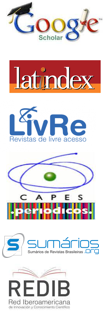A Participação das Instituições de Ensino Superior de Mineiros Enquanto Agências de Fomento de Capital Social no Desenvolvimento Regional
DOI:
https://doi.org/10.17921/2447-8733.2016v17n1p30-36Resumo
As instituições de ensino superior configuram-se como agentes sociais que, pela natureza dessas organizações, tendem a ser potencializadoras de processos de desenvolvimento regional. A abordagem desta pesquisa fundamenta-se no conceito de capital social, que viabiliza a formação de redes de relações pautadas na cooperação e reconhecimento mútuo. O artigo tem como objetivo avaliar as relações das Instituições de Ensino Superior do município de Mineiros, no Estado de Goiás, Brasil, enquanto organismos sociais constituídos, de maneira a responder a seguinte questão de pesquisa: qual é o papel das Instituições de Ensino Superior instaladas em Mineiros/GO frente às ações que promovam e ao acúmulo de capital social, elemento contributivo dos processos de desenvolvimento regional? A pesquisa caracteriza-se como exploratória, quanto aos objetivos, de abordagem qualitativa, com coleta de dados por meio de entrevista com os gestores das instituições de ensino superior instaladas no município. As dimensões analisadas foram: grupos e redes; confiança e solidariedade; ação coletiva; informação e comunicação; coesão e inclusão social; e empoderamento e ação política. Verificou-se que há um enfoque predominante das instituições na formação técnicaprofissional. Quanto à participação de grupos e redes, há certa similaridade no fato de participarem grupos que são característicos do meio, revelando a predominância de capital social estrutural. No que diz respeito a ações coletivas, as instituições limitam-se ao municiamento de uma coletividade semelhante a um exército de reserva de mão de obra elementarmente qualificada. É consideravelmente baixa a capacidade de diálogo entre as instituições instaladas em Mineiros e os diferentes segmentos da sociedade civil organizada. Em síntese, o capital social das instituições, ainda que baixo, possui gênese prioritariamente estrutural.
Palavras-chave: Capital Social. Desenvolvimento Regional. Instituição de Ensino Superior.
Abstract
Institutions of higher education are characterized as social agents which, by the nature of these organizations, tend to be potentiating processes of regional development. The approach of this research is established on the concept of social capital, that enables the formation of relationships networks based on cooperation and mutual recognition. The article aims to evaluate the engagement of higher education institutions in the municipality of Mineiros, State of Goiás, Brazil, while social organizations set up in order to answer the following research question: what is the role of Higher Education Institutions installed in Mineiros/GO ahead for actions that promote the accumulation of capital, contributory element in the processes of regional development? The research is characterized as exploratory, with qualitative approach and data collection through interviews with managers of higher education institutions located in the city. The dimensions analyzed are: groups and networks; trust and solidarity; collective action; information and communication; social cohesion and inclusion; and empowerment and political action. It was found that there is a predominant focus of institutions in technical and professional training. Regarding the participation of groups and networks, there is a similarity on the fact of participating in groups that are characteristic of the area, revealing the predominance of structural social capital. The collective action of institutions are limited to formed workforce. It's pretty low the capacity for dialogue between the institutions located in Mineiros and the different segments of civil society. In summary, the social capital of institutions, although it´s low has primarily structural genesis.
Keywords: Social Capital. Regional Development. Higher Education Institution.


